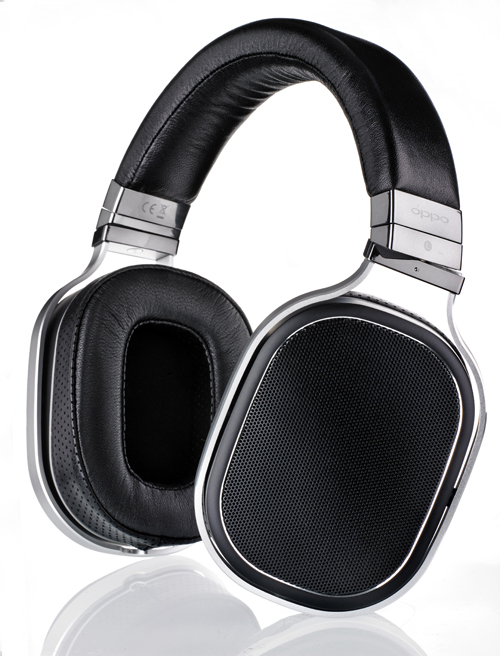What Hi-Fi? Verdict
Oppo’s first pair of headphones are a luxurious, resounding success
Pros
- +
Smooth, refined presentation
- +
Plenty of detail
- +
Massive scale
- +
Excellent bass
- +
Gorgeous build quality
Cons
- -
Smooth presentation means they’re not the punchiest
Why you can trust What Hi-Fi?
We must admit being baffled by Oppo’s product range. The company is best known for its high-end Blu-ray players, but then it joined the mobile phone market.
Now we have the PM-1 planar magnetic headphones. If there’s a market strategy, we can’t tell what it is.
Technology
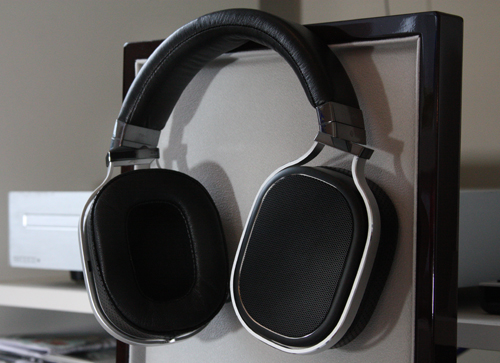
Of course, everyone is getting into headphones these days, so it’s not entirely surprising Oppo wants in.
But don’t assume the company is after Dr Dre’s turf. The PM-1s are high-end cans aimed at dedicated audiophiles, as the price tag attests.
Can any pair of headphones justify spending over £1000? We open the ridiculously large box and our scepticism softens as we pull out a beautifully polished wooden chest, the sort you might expect to hold duelling pistols.
By the time we finish listening, our answer is an effusive yes.
The Oppo PM-1s offer tremendously good sound in a gorgeous package, and we’re surprised they don’t cost more.
Before we talk about that, however, we should say a few words on planar magnetic technology.
Most headphones have conventional drivers. A cone is connected to a voice coil, which sits inside a magnet. The magnet attracts and repels the coil, causing the cone to move forwards and backwards – which makes sound.
A planar magnetic driver has a thin diaphragm, held between magnets. This diaphragm is printed with conductors: when pushed and pulled by the magnets, the whole diaphragm moves, with its surface evenly driven.
The idea is to offer greater accuracy and stability, and cut down on distortion.
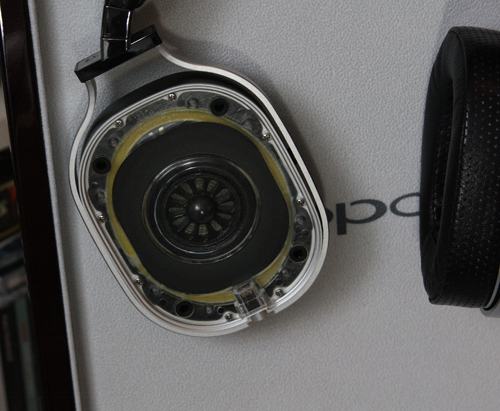
The Oppo PM-1s planar magnetic drivers are a little different. The diaphragm has seven layers – the company won’t say what materials they are – supposedly to enhance longevity and stability under stress.
It’s also printed with conductors on both sides in a spiralling pattern. This maximises the amount of conductor in the magnetic field, which is meant to yield greater drive force and higher sensitivity.
High sensitivity is a point Oppo seems keen to push. With a rating of 102db in 1mW, the PM-1s are supposedly sensitive enough to work on portable devices without the aid of additional amplification.
Factor in the weight of 395g and denim carry pouch, and it looks like Oppo really wants you to wear these outside.
We’re not entirely sure why. These cans are open-backed and unashamedly leaky. People can hear you, and you can hear them.
It’s the latter that concerns us the most: the sound is too good to be polluted by a bus, even if Oppo wants to emphasise portability.
Sound
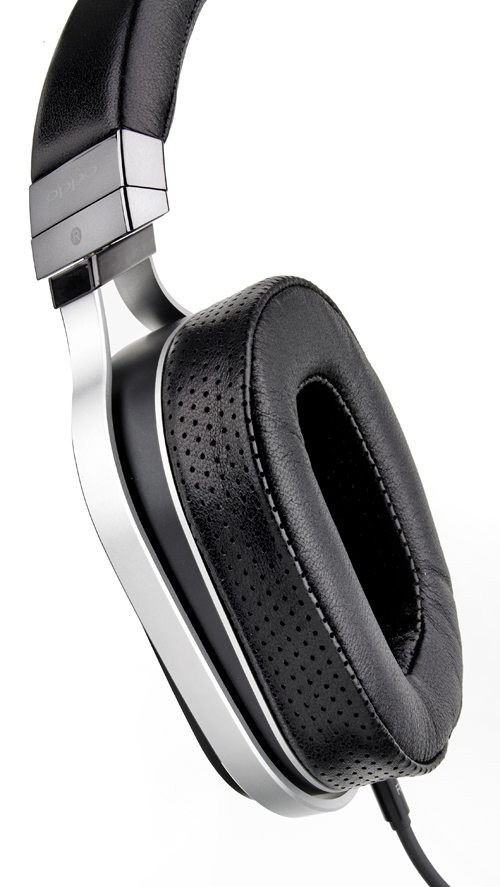
The PM-1s are a lovely listen. Their demeanour is so smooth and welcoming that we listen for hours, and it’s not a tiring experience.
What strikes you immediately is the sense of scale. It’s huge. It’s spacious and airy. Music doesn’t sound like it’s stuck between your ears, but rather floating around your head with a satisfying and impressive dimension.
There is also an extraordinary level of detail. Layers upon layers are revealed, and we hear new things we’d never noticed on some of our most beaten tracks. Instruments are not only easily identified, but also wholly convincing.
Use a low-quality recording and you will hear a difference. But these headphones won’t make a meal out of a recording’s flaws. They’re too polite for that.
We play an MP3 of The Flaming Lips’ Race for the Prize: this can (and often does) sound harsh, but not here.
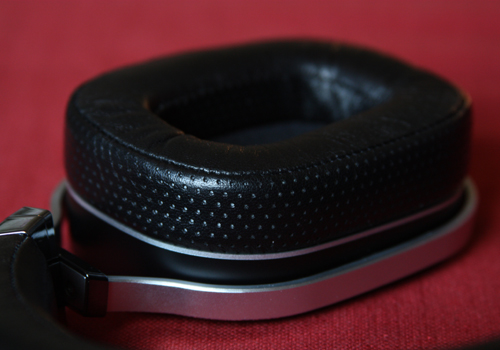
Yet they can pack one hell of a punch. It’s a substantial, meaty sound.
Leading edges of notes are firm, and there’s plenty of power to follow through. Dynamics are strong and far-reaching, and taut timing also helps.
Tonally, the sound is nicely balanced. The treble is sweet and sparkly, and the midrange is full-bodied.
The low end is particularly impressive: it’s properly deep and weighty, but tight and agile enough to support the rest of the frequency range. It’s rare to get bass this good on a pair of headphones.
If we had to nitpick, we’d say the smoothness and refinement on hand means they’re not as exciting or as bolder, punchier alternatives.
But we don’t think that’s really an issue. There is plenty here to keep you entertained for hours.
Design
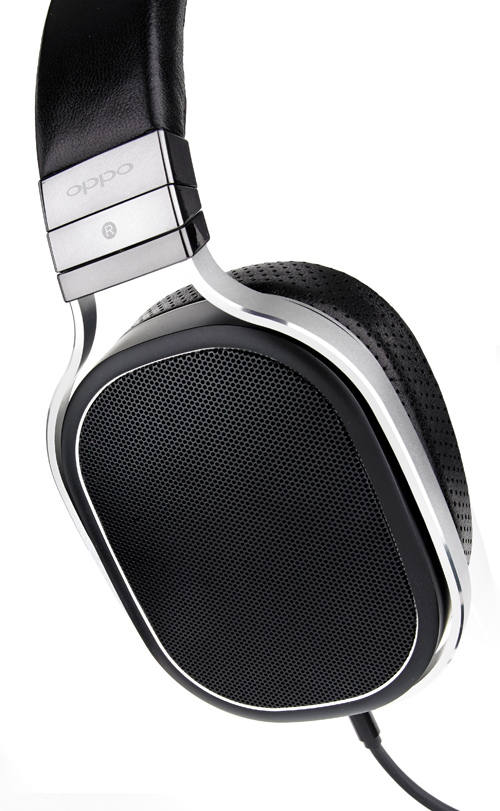
It’s taken some restraint not to discuss the physical side of the PM-1s until this point in the review.
They are gorgeous headphones, lavish, with attention to detail. You expect something shiny for £1100, but these really are special.
Super-soft lambskin leather covers the headband and removable ear pads, which have dimples for ventilation. Don’t worry if you don’t want leather on your face – there are alternative pads in velour.
The cushioning is made of natural latex. This is supposedly springier and more breathable than foam. It also resists moisture build-up from sweat, and has hypoallergenic properties.
Elsewhere, the body is mostly made of aluminium. Build quality is exemplary. Oppo was keen to emphasise its intense quality control process.
The headbands are stretched 20,000 times. Then they are opened and closed 20,000 times. And then the earcups are swivelled – yes – 20,000 times. This is to ensure they can take a good battering.
We don’t tend to give our headphones such a hard time, but we’d agree the moving parts are put together very well.
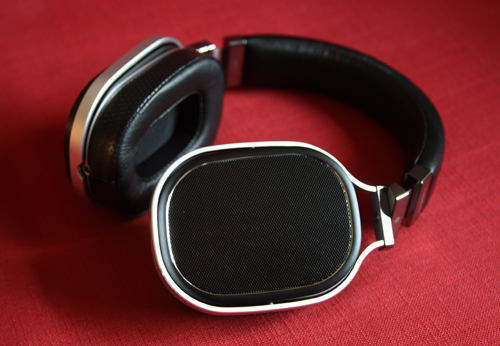
The headband opens with solid, satisfying clicks and the ear cups rotate smoothly. They’re very comfortable to wear – even after an hour we didn’t find them too tight, hot or heavy.
Our only concern is whether Oppo intends to keep going with headphones, and whether there will be after-sale service and parts for years to come.
You get two detachable cables in the box. For the home, which is where we’d keep the headphones, there’s a 3m fabric-coated OCC (ohno continuous casting) copper cable with a 6.3mm stereo jack.
It’s hefty and clearly built to last. You also get a regular 1m OFC cable with a 3.5mm jack, which doesn’t sound as good.
Verdict
We’re still surprised that Oppo has turned its hand to headphones, but the bigger surprise here is just how great they sound.
The PM-1s are a resounding success. We love them, and we think everybody should hear them.
Yes, £1100 is a lot to spend on headphones, but given the right partnering equipment – no smartphones, for heaven’s sake – we think they’re worth it.
MORE: Best headphones to buy in 2014
See all our headphone Best Buys
What Hi-Fi?, founded in 1976, is the world's leading independent guide to buying and owning hi-fi and home entertainment products. Our comprehensive tests help you buy the very best for your money, with our advice sections giving you step-by-step information on how to get even more from your music and movies. Everything is tested by our dedicated team of in-house reviewers in our custom-built test rooms in London, Reading and Bath. Our coveted five-star rating and Awards are recognised all over the world as the ultimate seal of approval, so you can buy with absolute confidence.
